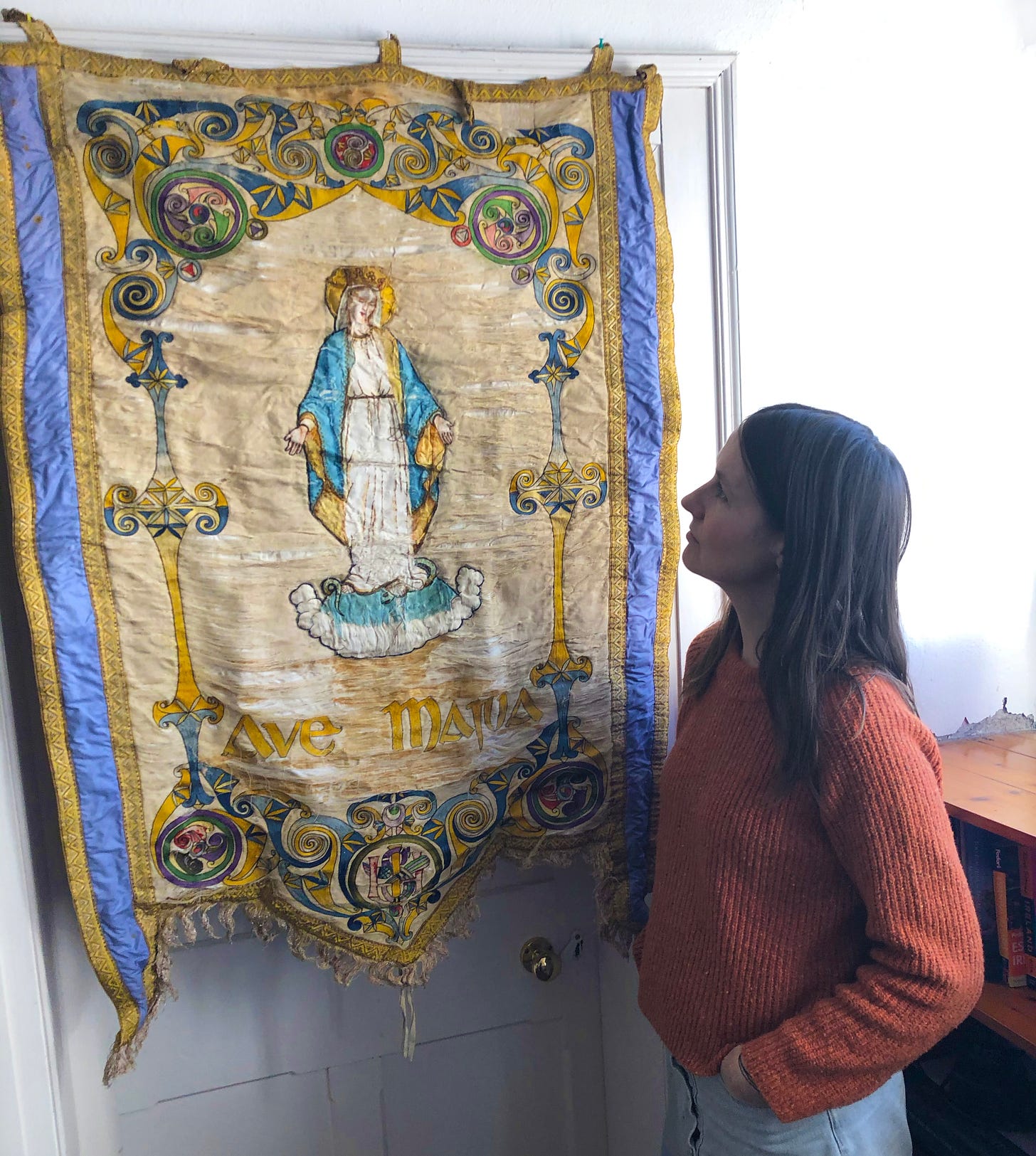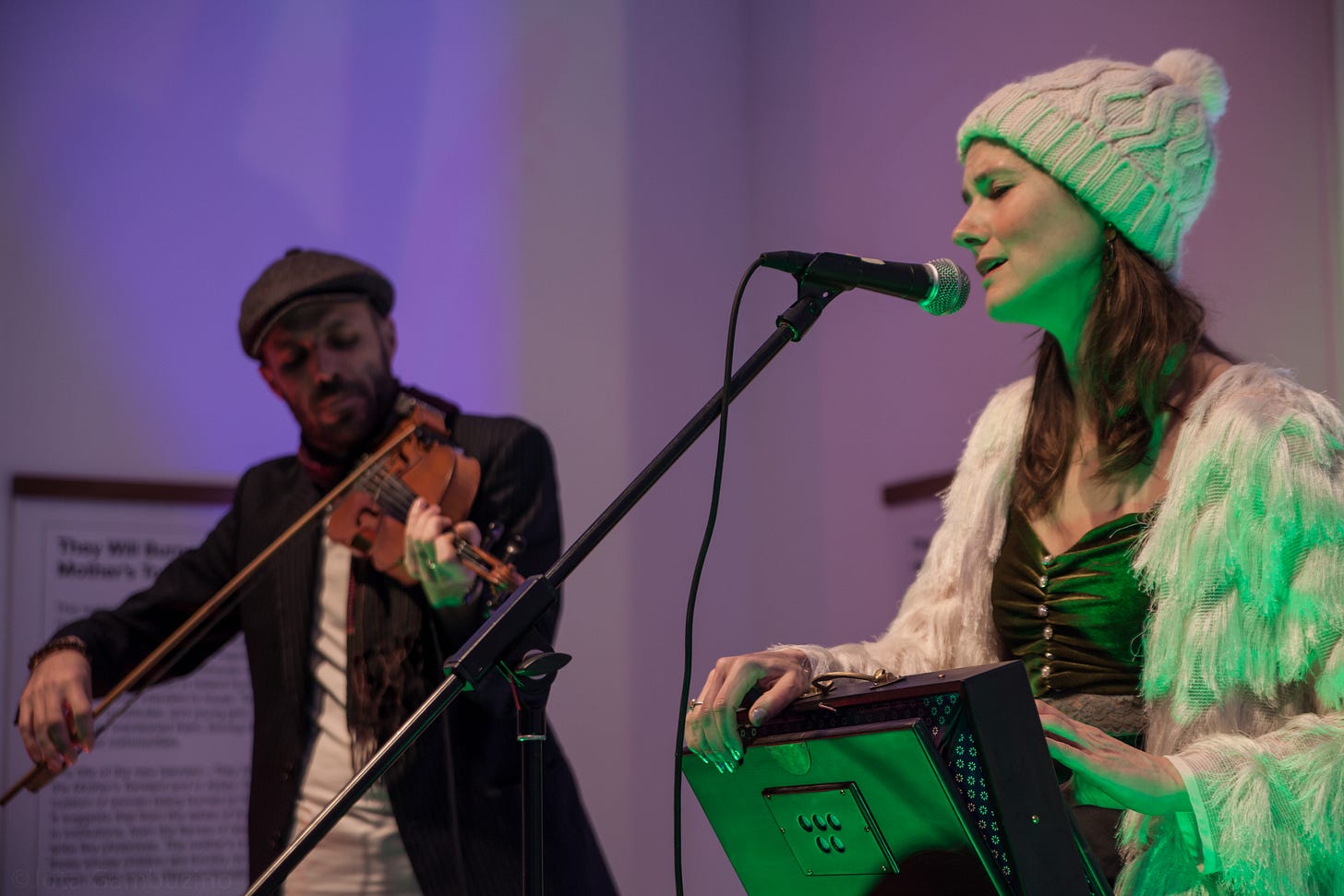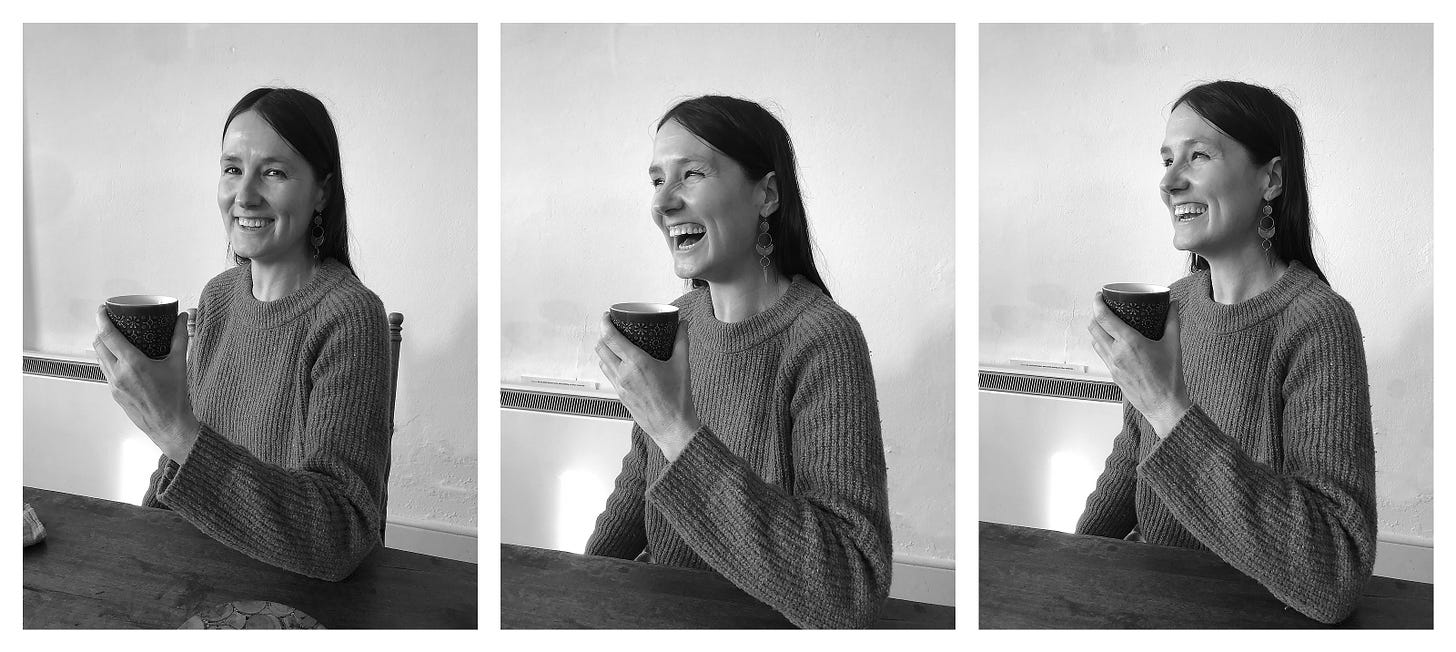Breaking the silence on institutional abuse with song
For singer-songwriter Lewis Barfoot, a journey into Mother Ireland uncovers a dark past of institutional incarceration for her Cork-born female relatives, and the opportunity to heal and make music.
Underneath the Sirius Arts Centre in Cobh, there’s a flat that used to be the kitchen and staff quarters back when the building was home to the Royal Cork Yacht Club.
These days, it’s in use as an apartment for artists on residencies at Sirius.
Folk singer-songwriter Lewis Barfoot has been in residence since before Christmas; she will stay until the end of January.
Hanging in the corner of the apartment’s living room, there is an embroidered banner of the Virgin Mary; in the hallway are draped many others. They are the kind of thing that you would see in religious processions. Most bear the names of local schools, as well as depictions of saints and phrases such as “Pray for us.”

“I came across them in a heap in the old orphanage in Cobh,” she tells me, staring at their embroidered surfaces. “They were being thrown away. They were in a corner, covered in rubble. I spoke to the caretaker and he asked if I’d like them, and I said yes.”
“I’ve cleaned some of them and I’m still deciding what I want to do with them. It may be that I will leave them as part of a heritage legacy at Sirius or the Cobh musuem, or I may use them as part of a live performance if I do make a live show out of Mother Ireland. Whatever I do, I want to keep them available for other people to enjoy because they actually are very beautiful pieces of art, and very important to the culture here in Cobh.”
Lewis was exploring the now-derelict orphanage, St Coleman’s Industrial School for Girls, which was run by the Sisters of Mercy, as part of research for the project that brings her to Sirius, a project the London-born singer has entitled Mother Ireland.
As a child growing up in Walthamstow, Lewis was conscious of her mother’s Irish past, but only just, and it was cloaked in secrecy; her mum, born Anastasia Joan Coleman in Cobh in 1940, would quickly change the subject when her childhood in Ireland was mentioned.
“We weren’t allowed to mention Ireland, although we went to a Catholic church and inherited the sort of sense of guilty shame for being a woman,” Lewis tells me. “All through my life, I was very curious about my family here in Ireland. I wanted to know what happened to my mum. When someone hides something, especially if it’s one of your parents, you want to know even more.”
“She didn’t talk about her childhood directly to me and it was really upsetting to her to even talk about it. If Ireland was mentioned, there was a fairly rapid ‘we don’t talk about that.’”
Lewis’ mum, now deceased, grew up in the orphanage in Cobh, sent there in 1945 at the age of five. She left at 15, moving first to Dublin and then emigrating to England, where she trained as a nurse and “very successfully built a new life for herself.”
Yet her silence concealed pain. Lewis has been in contact with others who were under the care of the inappropriately named Sisters of Mercy in the orphanage in Cobh and has been piecing together a painful truth: life in the orphanage was not exactly a bed of roses for the girls and young adults who were sent there.
“I know they had one potty for the whole dormitory for them all at night, no matter what age they were,” she says. “When they were older, if they stained their clothes with blood, they were beaten.”
“My mum was Anastasia Joan Coleman, but they always told her in the orphanage that she didn’t deserve that name so she was called Joan. Someone else who was in at the same time as her has told me that they were actually known by numbers and not by names at all.”
Lewis’ mum was one of nine siblings, and part of the singer’s research at present is piecing together what happened a generation earlier, to her grandmother, Bridget Colbert. Bridget was incarcerated in Our Lady’s psychiatric hospital in Cork for many years, until her death, Lewis believes, even though commentary from Lewis’ extended family, including her dad, was that there was “nothing wrong with her.” Had she been committed by her husband? Why were her nine children all sent to industrial schools and orphanages?
Lewis is currently in the process of acquiring her grandmother’s medical notes.
“On a personal level, I’m really looking forward to unravelling what happened to her there,” she says.
Breaking the silence with song
The residency Lewis is currently on is by no means the beginning of her journey into Mother Ireland. In fact, her debut solo album, Glenaphúca, is named for her grandparents’ abandoned farm near Cobh.
She started visiting Cork in 2018, making a series of visits before deciding to move from London in 2019, the better to pursue her research into her Irish family roots. She originally moved to Cobh, but is now based near Bantry.
Glenaphúca was released in spring last year, with an album tour of the UK and Ireland in November and December 2021. Her video, Fisherman, became a two-year project in its own right as she worked with Korean animator Narae Kim on a hand-drawn animation embedded above and currently on display in the Sirius Centre.
Having played in the Sirius Centre as part of this tour, the arts venue invited her back on residency.

What the Mother Ireland project will become, Lewis says, is still unclear.
“I’m going through all of the documentary style footage I’ve taken; I’ve filmed in the orphanage and I have audio recordings. I’m in the centre of my creative storm, but a good storm, where I have 20 songs and loads of ideas, and great themes. I know I have an album, but I’m open to the idea that there is a live performance here too, with film and storytelling and other elements.”
“I want to let it emerge to be what it needs to be, so I need to get out of the way, actually, and let that happen.”
Whatever the emerging artistic output, Lewis believes her role in exploring and speaking openly about the history of incarceration of her female relatives in Ireland is in “turning around that shame, and that legacy of abandonment and trauma.”
“I witnessed my mother not to be able to talk about a subject that sat like a stone in her heart,” she says.
“If you’re continually told you don’t even deserve your name, that creates a deep sense of unlovability: ‘I am unworthy, I am unlovable.’ That’s a clear portal into feeling shame, into feeling not good enough for life. And it’s a testament to my mum and some of the other women I’ve met who went through similar things that they are tough as nails, that they’ve had to cultivate this sense of two fingers up to survive. But they were often too traumatised to lean into that wound, so there was silence.”
“I have incredible journeys with sadness and rage and grief and loss and that’s the work,” she says.
“I see myself as the end of a line. The buck stops with me, the inability to speak stops with me, the shaming stops with me. I am prepared to go to the dark places and find light, and heal and transform them.”
Lewis Barfoot’s debut album, Glenaphúca, is available to purchase on Bandcamp.




